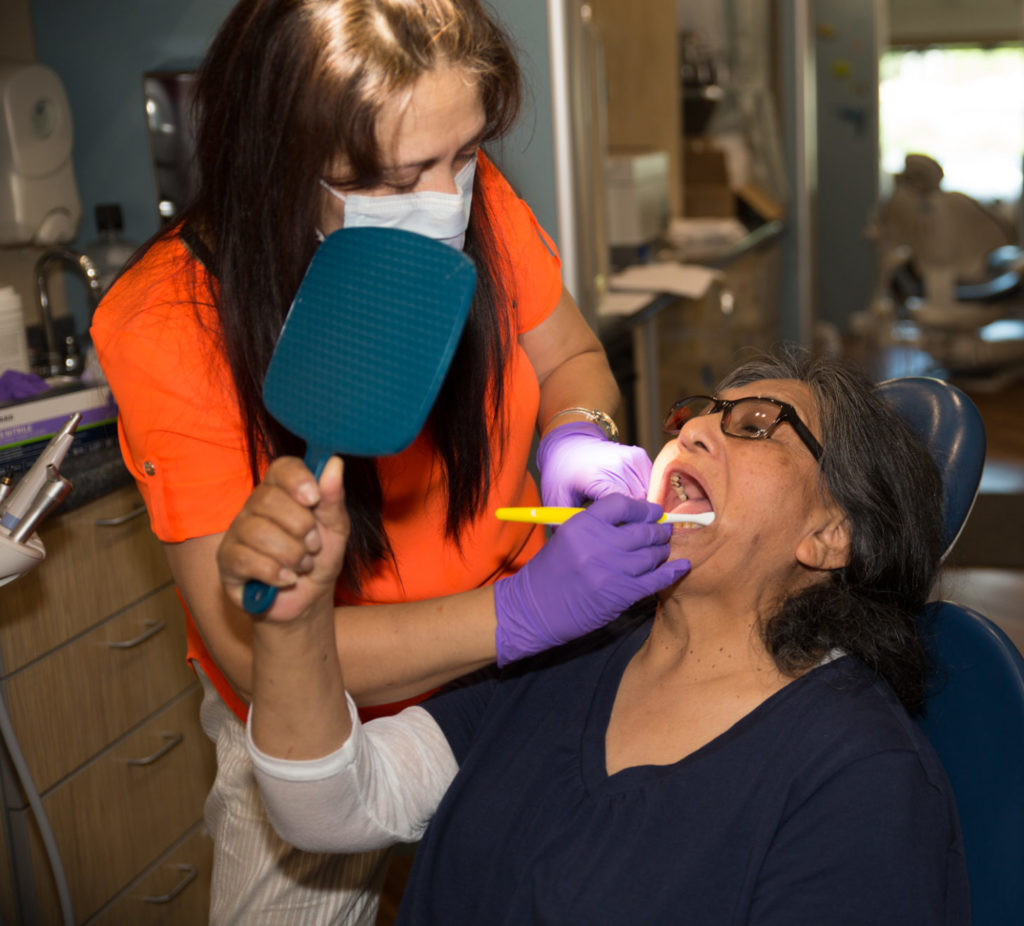Your oral health directly impacts your overall physical health.
“It’s been shown that more bacteria in the mouth increases the likelihood of infections throughout the body,” said Dr. Ben Geisler, Director of the Ossining Dental Program at Open Door Family Medical Center. “There are links, for example, between periodontal disease and both blood pressure and heart disease.”
Studies even show a direct link between poor dental care and Alzheimer’s disease.
And yet, less than 65 percent of all American adults reported seeing a dentist over the past year, according to statistics published by Health, US Data Finder. This number falls to below 50 percent among Blacks and Hispanics and under 40 percent among those who live at or below the federal poverty levels.
This is particularly important to note during National Dental Hygiene Month in October, a time intended to raise awareness of the importance of proper dental care while promoting healthy mouths, gums and teeth.
And while the data shows that about 85 percent of children ages 2 – 17 have seen a dentist over the past year – a significant increase over 25 years ago – that number can be improved according to dentists like Dr. Geisler, who strongly encourages parents to begin a dental routine with their children as early as possible. This serves many purposes, he said, including avoiding a child’s fear of the dentist.
“We tell parents with babies to just bring them in for a quick visit. They don’t even need an appointment,” he said. “Children should see the dentist by their first birthday, ideally at the time they get their first tooth. Checkups and cleanings are recommended every sixth months, and fluoride application quarterly. It’s heartbreaking when children don’t see a dentist until they are enrolled in kindergarten or start having pain. By that time, a lot could have happened.”
The use of fluoride, for example, attacks the bacteria itself, restores enamel and inhibits active decay. “If I see your child as soon as they have teeth and you continue with regular visits, your child will never have a cavity or if they do have one, it’s easy to fix. Cavities are preventable.”
Open Door has an estimated 60,000 dental visits each year, which includes 9,000 preventive cleanings. Through various grants, it has received funding for programs that range from the hiring of staff and the launching of an educational campaign to increase dental visits among HIV/AIDS patients in its Well Care program – a high-risk population where good oral health is critical – to the use of a mobile van that regularly visits school-based health centers. Open Door increased the percentage of HIV/AIDS patients who see a dentist from between 30 – 40 percent to 80 percent. Its mobile dental van, which was shelved during the pandemic but will shortly be back on the road, visits children at their schools in Ossining and Port Chester and provides on-site dental health information directly to them.
“It’s tough when you see patients who don’t come to the dentist until they have pain or a mouth full of cavities,” said Dr. Geisler. “You can’t help saying to yourself, ‘If only they had seen the dentist sooner.’”




